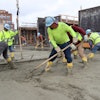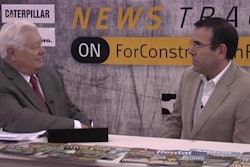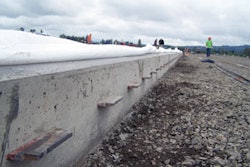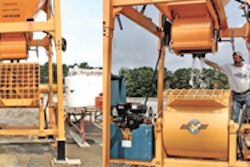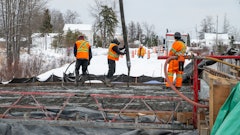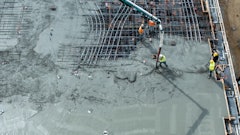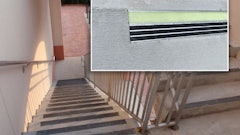The Concrete Foundations Association (CFA) recently launched its Foundation Company Certification Program. Companies that earn the designation set themselves apart from their competitors and show customers they possess a high level of knowledge and experience in the concrete industry.
The CFA Foundation Company Certification Program was first introduced at the CFA's 2008 summer meeting. The goal of the Certification Committee was to create a designation recognized in the industry as a true signal of quality and expertise.The certification process includes a requirement that an organization have at least two employees certified as Foundation Technicians by passing the Certification Exam, but that's only the first step in company certification. The balance consists of supplying information about insurance coverage, operations, financial stability, identification of references, and other basic company knowledge. A private company has been retained to grade and compile the exams, verify company information, and oversee the operation of the program. To date, six companies have met the criteria required to be named CFA-Certified Foundation Companies.The program also allows for anyone who takes the exam to achieve the designation of CFA Certified Foundation Technician, regardless of whether the contractor's employer is a certified company.
The exam
The Certification Committee worked to create an exam that would identify a significant level of knowledge of the industry - not a rubber stamp certification. The result was quickly verified following the first two official exams. This exam covers the knowledge foundation contractors should know in eight categories: safety, concrete, soils/excavation, footings, walls, moisture/waterproofing/drainage, backfilling/grading and building codes.
The exam is "open book," much different from a closed-book exam. Closed-book exams ask questions the educated person can answer based on their experience or knowledge base. Open book exams, on the other hand, ask detail questions that rely more on the examinees knowledge of the content of the references used in the exam. The typical contractor would not be able to come up with answers to the questions on the CFA Certification Exam off the top of his or her head. But, if you spend time familiarizing yourself with the reference materials, you should be able to complete the exam.
Not all of the questions require extensive look-up but there are enough of them that if you plan to take the exam, you should familiarize yourself with where the information can be found. Note taking takes on an entirely different spin when instead of attempting to memorize specific answers, you are attempting to find out where to go to get the answer.
"It is the very knowledge we want our certified contractors to have," states Ed Sauter, CFA executive director. "Where to get the answers to questions my customers or building officials might ask."
The reference materials everyone must bring to the exam include:
- The CFA 2006 Standard;
- ACI 332.1R-06 Guide to Residential Construction
- ACI 332-08, Code Requirements for Residential Structural Concrete and Commentary
- Basic Concrete Technology (compilation)
- Chapter 4, 2006 IRC
- Safety Compilation (OSHA Excavation Inspection & Fall Protection, Heat Stress Training and other safety materials)
- Co-worker Safety Rules (ACPA Version 5.0.1
- CFA Tech Notes 001, 002, 003
- Soils and Excavation (Compilation)
These resources are available directly from the CFA in a Certification Reference Kit. "You should have these materials in your reference library even if you don't plan to take the exam," Sauter says.
The exam is 80 multiple-choice questions and a passing score is 70 percent. Most contractors who took the initial exam used the entire 2-hour allotted time period.
Three exams are currently scheduled for 2009, with a seminar offered prior to each exam that will cover some of the information you will need: World of Concrete in Las Vegas, Feb. 3-6; Mount Vernon, Iowa, March 26; and the CFA Summer Convention in Amelia Island, Fla., July 29-Aug. 1.
So why should you become certified? Some building code jurisdictions are requiring it in order to do business in their areas. Other companies are becoming certified as a means of setting them apart from the competition. The Association will be promoting the use of CFA-Certified contractors to builders, owners and building officials.
If you would like more information, please contact Ed Sauter at the CFA. Phone 319-895-6940 or [email protected].

